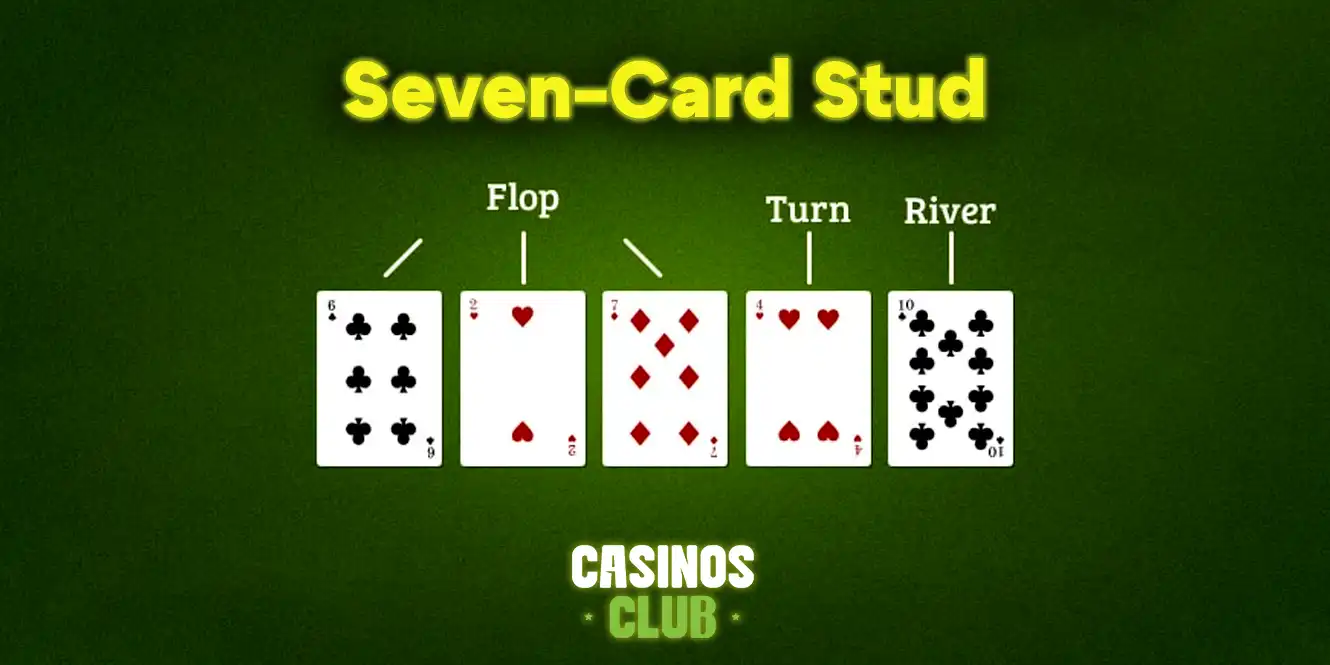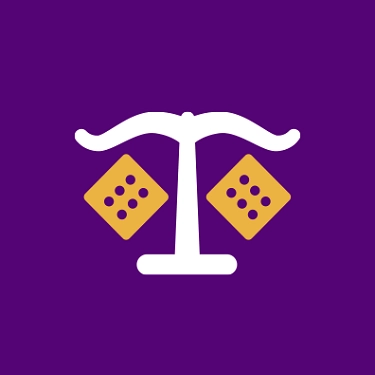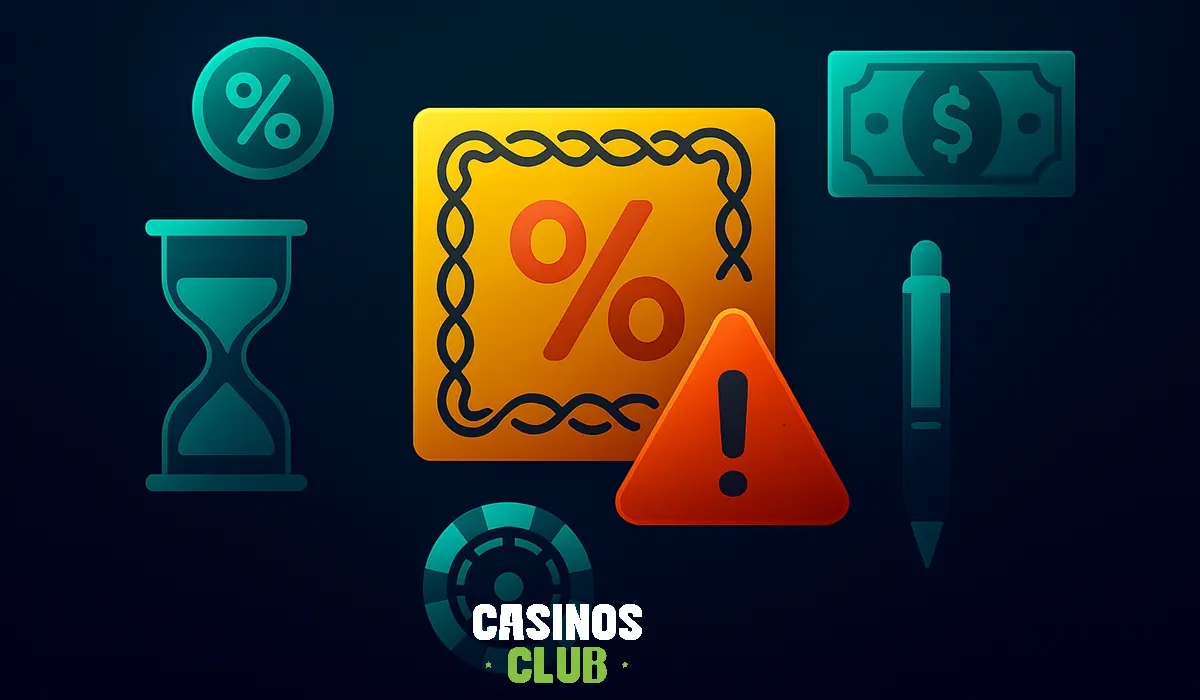
02 February 2025
Types of Poker: Different Poker Games & Variations
Poker is more than just cards and poker chips, it's a game of skill, luck, and psychology. Every poker variant has unique rules, strategies, and ways to win. Some games, like Texas Hold’em, rely on community cards, while others, like Stud Poker, give each player their own hidden hand.
Why does this matter? Well, imagine walking into a poker night and realizing you're playing a version you've never heard of. Knowing the different types of poker ensures you're ready for anything!
Why Learn About Poker Variants?
Ever sat down at a poker table, confident, only to realize everyone else is playing a game you don’t recognize? Learning different poker games isn’t just fun, it’s necessary.
- Some poker variants are great for fast action (Omaha Poker, anyone?), while others reward patience and reading your opponents (Seven-Card Stud).
- Some are fun poker games that you can play casually, like Chinese Poker.
- Knowing different versions means you’ll never feel lost at the table again.
How Poker Games Evolved Over Time
Poker wasn’t always the game we know today. In fact, early versions looked very different!
- 1700s: Poker-like games began in France (Poque) and Germany (Pochen).
- 1800s: It made its way to America, where Five-Card Draw became popular.
- 1900s: Casinos introduced Texas Hold’em, making it the most popular poker game today.
- 2000s-Present: Online poker and new variations like Pineapple Poker have expanded the game worldwide.
Texas Hold'em: The Most Popular Poker Game

Texas Hold’em is the king of popular poker games, played in online casinos, home games, and tournaments worldwide. Each player starts with two private cards and uses five community cards to make the best poker hand. The game is full of strategy, from reading opponents to deciding when to bluff. With millions of players, Texas Hold’em has become the go-to game for beginners and professionals.
Texas Hold’em Rules and Hand Rankings
The game begins with each player receiving two hole cards. The dealer places five community cards on the table in three rounds: the flop (three cards), the turn (one card), and the river (one card).
Players use a combination of their hole cards and the community cards to make the best possible poker hand. The standard poker hand rankings determine the winner:
Each betting round gives players a chance to fold, call, raise, or go all-in. The game ends with a showdown, where the best hand wins.
Strategies for Winning Texas Hold’em Games
Winning in Texas Hold’em isn’t just about luck. Smart players use strategy, patience, and psychology.
- Starting Hands Matter: Playing strong hands like Aces, Kings, and Queens increases the chances of winning.
- Position is Key: Sitting later in the betting order allows for better decision-making based on others' actions.
- Bluffing Wisely: Bluffing works best when the opponent believes your story.
- Reading Opponents: Watching for nervous habits, quick bets, or hesitation can reveal weak hands.
- Bankroll Management: Smart players avoid reckless all-ins and manage their poker chips wisely.
Omaha Poker: Different Poker Variations Explained
Omaha Poker is a fast-paced, action-packed poker variant that builds on the fundamentals of Texas Hold’em but adds an exciting twist. Players receive four hole cards instead of two, leading to stronger poker hands and more strategic decisions. The game rewards players who think ahead, calculate odds, and make disciplined bets. Many poker players transition from Hold’em to Omaha because of its complexity and challenge.
Omaha Hi vs. Omaha Hi-Lo: Understanding the Differences
Omaha comes in two major versions:
🃏 Omaha Hi (Pot-Limit Omaha - PLO)
- The highest hand wins the pot.
- Players must use exactly two hole cards and three community cards to form a hand.
- This version is known for big pots and aggressive betting.
🃏 Omaha Hi-Lo (Omaha 8 or Better)
- The pot is split between the highest and lowest hands.
- The low hand must have five unpaired cards ranked 8 or lower (e.g., A-2-3-4-7).
- Players can win both halves of the pot with a strong high and low hand (a scoop).
Understanding these differences is crucial when choosing the best Omaha poker strategy.
Best Strategies for Omaha Poker Players
Winning in Omaha poker requires a different mindset than Texas Hold’em. Here are key strategies:
- Starting Hands Matter – A♠️ K♠️ Q♦️ J♦️ is much stronger than A♠️ A♣️ 7♦️ 2♥️ because Omaha favors hands with multiple connected cards.
- Think in Combinations – With four hole cards, there are more possible poker hands, so assume your opponents have strong holdings.
- Position is Powerful – Playing in late position allows for better decision-making, just like in Hold’em.
- Avoid the ‘Second-Best Hand’ Trap – In PLO, second-best flushes or straights can be dangerous, as stronger hands are more common.
- Understand the Nut Low in Omaha Hi-Lo – A hand like A-2-3-4-5 is unbeatable for the low pot. Playing strong low hands ensures a piece of the pot.
Omaha offers some of the most exciting poker action, with bigger pots and more dramatic showdowns. Many players love Omaha for its complexity, making it one of the best poker games to play with friends who enjoy strategy-heavy gameplay.
Having a poker cheat sheet is an important tool. It provides quick, accessible references for hand rankings, starting hands, odds, and other poker strategies that can improve your game.
Seven-Card Stud: A Classic Poker Game Variant

Before Texas Hold’em and Omaha dominated the poker world, Seven-Card Stud was the casino game of choice, home games, and professional tournaments. Unlike community card games, players receive their own set of cards, some face-up and some face-down. Strategy in Seven-Card Stud revolves around reading opponents’ exposed cards, memorizing folded hands, and making the best five-card hand.
How to Play Seven-Card Stud Poker
Seven-Card Stud follows a structured betting format with no flop, turn, or river. Instead, players receive cards across multiple betting rounds:
- Third Street – Each player gets two face-down cards (hole cards) and one face-up card. The player with the lowest upcard starts the betting.
- Fourth Street – Each player receives another face-up card, and betting begins with the player showing the strongest hand.
- Fifth Street – A third face-up card is dealt, followed by another betting round.
- Sixth Street – A fourth face-up card is dealt, leading to more betting.
- Seventh Street (The River) – The final face-down card is dealt, and the last round of betting takes place.
- Showdown – Players reveal their best five-card poker hand using any combination of their seven cards. The best-ranked hand wins the pot.
Unlike Texas Hold’em, where players use shared cards, Seven-Card Stud requires strong memory skills and reading abilities to track which cards are still in play.
Advanced Tips for Seven-Card Stud Poker Games
Winning in Seven-Card Stud requires patience and observation. Here are some advanced strategies to improve your game:
- Track Exposed Cards – Pay close attention to the upcards of folded players. If you need a straight or flush, knowing which cards are still available helps.
- Starting Hands Matter – Hands like three-of-a-kind (trips) or three connected suited cards (e.g., 7♠ 8♠ 9♠) have strong potential. Avoid weak starting hands.
- Control the Pot – Bluffing is harder in Seven-Card Stud since opponents can see your upcards. Bet aggressively when you have the lead but fold if your hand weakens.
- Recognize Your Opponent’s Strength – If an opponent is showing three high cards, they likely have a strong hand. Don’t chase weak draws against clear strength.
- Position is Still Important – Although there’s no button like in Hold’em, players who act later in the betting round have more information.
Seven-Card Stud rewards disciplined, strategic play and is a favorite among old-school pros. While it’s not as fast-paced as Hold’em or Omaha, it remains one of the most popular poker games for those who enjoy deep strategy.
Five-Card Draw: A Simple Yet Fun Poker Game
Five-Card Draw is one of the easiest poker games to play with friends, making it a great choice for beginners. Unlike Texas Hold’em or Omaha, there are no community cards, each player works with their own five-card hand. The simplicity of Five-Card Draw makes it a favorite in home games and casual settings, but there’s still plenty of strategy involved.
Five-Card Draw Poker Rules for Beginners
The game follows a simple structure:
- The Deal – Each player is dealt five private cards. No one else can see them.
- First Betting Round – Players can either fold, bet, or raise based on their hand strength.
- The Draw – Players can exchange up to three cards (or four if holding an Ace) to improve their hand.
- Final Betting Round – After the draw, another round of betting occurs.
- Showdown – Remaining players reveal their hands. The best poker hand ranking wins the pot.
Since there are no shared cards, bluffing and reading opponents play a huge role. Players must judge how strong their hand is based on how many cards others choose to discard.
Winning Strategies in Five-Card Draw Poker
Mastering Five-Card Draw requires more than just hoping for a lucky hand. Here are key strategies to stay ahead:
- Strong Starting Hands Matter – Keep pairs, three-of-a-kinds, and straights. If you start with a weak hand, folding is often the best move.
- Bluffing is Powerful – Since players can’t see your hand, well-timed bluffs can pressure opponents into folding stronger hands.
- Pay Attention to the Draws – If an opponent only trades one card, they likely have a strong pair or a four-card straight/flush draw. If they swap three, they probably started weak.
- Don’t Overplay Medium Hands – Hands like one pair with a low kicker are often beaten by stronger pairs or better hands. Play cautiously.
- Tight and Aggressive Play Works Best – Only play strong starting hands, and when you do, bet aggressively to build the pot.
Pineapple Poker: A Unique Poker Variation
Pineapple Poker is a fun twist on Texas Hold’em, played with an extra card that adds excitement and strategic depth. This game is perfect for players who love Hold’em but want something different. While Pineapple Poker isn’t as widely played in best payout casinos, it’s a favorite in home poker games and friendly gatherings.
Rules of Pineapple Poker and How It Differs from Hold’em
Pineapple Poker follows the same basic structure as Texas Hold’em, but with one key difference:
- The Deal – Each player is dealt three hole cards instead of two.
- The Discard – Before the flop, each player must discard one of their hole cards.
- The Flop, Turn, and River – Just like in Hold’em, five community cards are dealt.
- Betting Rounds – Players bet before and after the flop, turn, and river, just like in Hold’em.
- Showdown – The best five-card poker hand wins the pot.
This small change dramatically shifts strategy. Since players start with three cards, they have better initial hands, making big hands like straights and flushes more common.
There are also variants of Pineapple Poker:
- Crazy Pineapple – Players discard after the flop, giving them more information before choosing their final hand.
- Lazy Pineapple – No discard at all! Players keep all three hole cards until the showdown, leading to huge hands and wild action.
Pineapple Poker Tips for Players of All Levels
To master Pineapple Poker, players need to adjust their Hold’em strategies and consider how the extra card impacts decision-making.
- Choose the Right Card to Discard – Discarding the wrong card can turn a winning hand into a losing one. Keep cards that build strong combinations.
- Expect Higher Hand Strengths – Since players start with three cards, two-pair hands are much more common, and simple pairs don’t hold up well.
- Be Careful with Bluffs – With more powerful hands in play, bluffing is riskier than in regular Texas Hold’em.
- Position Still Matters – Late position allows players to see what others do before discarding, giving a slight advantage.
- Practice in Fun Games – Since Pineapple Poker isn’t found in many instant play casinos, it’s best played in home poker games or online practice tables.
Pineapple Poker brings fresh excitement to the classic Texas Hold’em format, making it one of the most entertaining poker games to play with friends.
Razz Poker: A Different Poker Hand Ranking System
Razz Poker flips traditional poker hand rankings upside down. Instead of aiming for the highest hand, players compete to make the lowest five-card hand possible. This makes Razz a unique and strategic poker variation, often included in mixed poker games like H.O.R.S.E.
Razz Poker Rules and How It Differs from Other Poker Games
Razz is a form of Seven-Card Stud, but the lowest hand wins. The game follows the same betting structure as Stud:
- Third Street – Each player receives two hole cards (face-down) and one upcard. The player with the highest upcard starts the betting.
- Fourth to Sixth Street – Players receive three more upcards, with betting rounds after each one.
- Seventh Street (The River) – The final card is dealt face-down, followed by a final betting round.
- Showdown – The lowest five-card hand wins the pot.
Unlike Seven-Card Stud, where a Royal Flush is the best hand, in Razz, the best possible hand is A-2-3-4-5 (called the “wheel”).
Best Strategies for Playing Razz Poker Successfully
Because low hands win in Razz, players must adjust their poker strategy to focus on small, unpaired cards.
- Starting Hand Selection is Crucial – Hands like A-2-3 or 3-4-5 give the best chances of making a strong low hand.
- Avoid Pairs and High Cards – If you’re dealt high cards like K-Q-J, it’s often best to fold immediately.
- Track Opponents’ Upcards – Since many cards are face-up, players can tell if opponents are likely to make a better low hand.
- Be Aggressive with Strong Lows – If you start with A-2-4, don’t be afraid to bet and force players with weaker hands to fold.
- Watch for “Dead Cards” – If you need a 2, but three of them are already showing in other players' upcards, your chances of improving are slim.
Razz is a mind game, where smart play and memory skills outweigh pure luck. Though it’s not as widely played as Hold’em or Omaha, Razz is a must-know game for serious poker enthusiasts.
Badugi Poker: An Unconventional Poker Variant
Badugi Poker stands out as a unique lowball draw poker game where the goal is to make the lowest four-card hand with different suits ♠️♦️♣️♥️ and no pairs. Unlike traditional poker variations, Badugi hands are ranked differently, making it a game of skill, patience, and bluffing.
Badugi Poker Rules and Gameplay Explained
Badugi follows a draw poker structure, allowing players to exchange cards to improve their hand. The best Badugi hand consists of four different suits ♠️♦️♣️♥️ with the lowest possible ranks.
How the Game Works:
- The Deal – Each player receives four private hole cards ♠️♦️♣️♥️.
- First Betting Round – Players place their initial bets based on their hand strength.
- First Draw – Players can discard 0 to 4 cards to improve their hand.
- Second Betting Round – After the draw, players bet again.
- Second Draw – Another chance to exchange unwanted cards.
- Third Betting Round – More betting follows after the second draw.
- Final Draw – A last opportunity to swap cards.
- Final Betting Round & Showdown – The player with the lowest Badugi hand ♠️♦️♣️♥️ wins the pot.
Badugi Hand Rankings (Best to Worst):
- 4♠️ 3♦️ 2♣️ A♥️ → Best possible hand (Four different suits, lowest ranks).
- 7♠️ 6♦️ 5♣️ 2♥️ → Strong hand (All different suits, low cards).
- Q♠️ 5♦️ 3♣️ 2♥️ → Decent hand (Still four suits, but higher ranked).
- 5♠️ 4♣️ 3♦️ 3♥️ → Weaker hand (Duplicate rank, three-card Badugi).
- J♠️ 8♠️ 4♦️ 2♣️ → Bad hand (Two spades ♠️, only a two-card Badugi).
If two players have the same number of Badugi cards, the lowest highest card wins. For example, 5♠️ 4♦️ 3♣️ 2♥️ beats 6♠️ 4♦️ 3♣️ 2♥️ because 5♠️ is lower than 6♠️.
How to Master Badugi Poker for Consistent Wins
Since Badugi hands are often incomplete, strong decision-making and observation are crucial.
- Premium Starting Hands Matter – A hand like A♠️ 2♦️ 3♣️ 4♥️ is a powerhouse. Avoid hands with duplicate suits.
- Track Opponents’ Draws – If a player draws three cards, they likely have a weak hand. If they stand pat (take no cards), they already have a strong Badugi ♠️♦️♣️♥️.
- Bluffing is Key – Since many Badugi hands are weak, standing pat early can pressure opponents into folding.
- Don’t Chase if the Odds Are Bad – If you hold J♠️ 9♦️ 6♣️ 2♥️, drawing for a perfect Badugi might not be worth the risk.
- Position Helps in Every Poker Game – Acting last in a betting round gives valuable insight into your opponent’s strategy.
Badugi Poker offers a refreshing challenge for players who enjoy draw poker and lowball games. Unlike Texas Hold’em or Omaha, it requires a completely different approach, making it an exciting addition to home poker games.
Chinese Poker: A Fun Poker Game to Play with Friends

Chinese Poker is a unique twist on traditional poker games, focusing on hand-building strategy rather than betting rounds. Unlike Texas Hold’em or Omaha, players are dealt 13 cards and must arrange them into three separate poker hands. This format makes Chinese Poker an exciting choice for home poker games and a great way to challenge friends.
How to Play Chinese Poker and Score Points
Chinese Poker follows a point-based system rather than betting rounds. Players must organize their 13-card hand into:
- Front Hand (3 cards) – The weakest hand (usually a high card or small pair).
- Middle Hand (5 cards) – Must be stronger than the front hand.
- Back Hand (5 cards) – Must be the strongest hand of the three.
At showdown, players compare their hands one by one with opponents. A player earns points for winning two or more hands against another player. If all three hands win, it’s called a "scoop", which gives extra points.
Scoring in Chinese Poker:
- Win 2 out of 3 hands → 1 point.
- Win all 3 hands (Scoop) → 3 points.
- Lose all 3 hands (Swept) → -3 points.
Some versions of Chinese Poker also include Royalties (Bonus Points) for strong hands, such as:
- Royal Flush (A♠️ K♠️ Q♠️ J♠️ 10♠️) → +5 Points
- Straight Flush (9♦️ 10♦️ J♦️ Q♦️ K♦️) → +4 Points
- Four of a Kind (A♣️ A♦️ A♥️ A♠️ 5♣️) → +3 Points
Best Strategies for Winning in Chinese Poker Games
Because players do not bet in Chinese Poker, the game revolves around proper hand arrangement and outplaying opponents through positioning.
- Balance Your Hands – If your front hand is too weak, you risk losing it. If your back hand is too weak, opponents can easily scoop you.
- Avoid Fouling Your Hand – The back hand must be the strongest, followed by the middle hand, and then the front hand. If you break this rule, you automatically lose the round.
- Use Royalties to Your Advantage – A strong Four of a Kind in the back hand can give extra points, even if you lose the other hands.
- Recognize Opponent Patterns – Players often favor certain hand structures. Understanding this can help exploit their weaknesses.
- Practice Open-Face Chinese Poker (OFC) – This popular variation reveals cards as the game progresses, adding even more strategy.
Why Play Chinese Poker?
Chinese Poker is a perfect poker game to play with friends, offering a mix of luck, skill, and hand-building strategy. Since there are no betting rounds, even beginners can enjoy the game without the pressure of complex poker rules.
H.O.R.S.E Poker and Other Mixed Poker Games
Some poker players master Texas Hold’em, while others specialize in Omaha or Seven-Card Stud. But what if a game forced you to play multiple poker variations back-to-back? That’s exactly what H.O.R.S.E Poker does. This mixed-game format tests a player's all-around poker skills, making it a favorite among seasoned pros and serious poker enthusiasts.
What is H.O.R.S.E Poker? A Multi-Variant Poker Game
H.O.R.S.E is an acronym that represents five different poker games played in rotation:
- H – Hold’em ♠️♦️♣️♥️ (Texas Hold’em) – The most popular poker game using community cards.
- O – Omaha Hi-Lo ♠️♦️♣️♥️ – Split-pot game where both the highest and lowest hands win.
- R – Razz ♠️♦️♣️♥️ – A lowball version of Seven-Card Stud, where the worst hand wins.
- S – Seven-Card Stud ♠️♦️♣️♥️ – Classic poker where players receive their own cards and no community cards.
- E – Seven-Card Stud Hi-Lo ♠️♦️♣️♥️ – A variation of Stud where the pot is split between the highest and lowest hands.
Each round, the game rotates to the next variant, forcing players to adapt quickly. H.O.R.S.E Poker is played at fixed-limit betting, meaning no huge all-in bets like in No-Limit Hold’em.
Learning 8-Game Mix: A Challenge for Poker Enthusiasts
While H.O.R.S.E tests a player’s versatility, the 8-Game Mix takes it even further. This variation includes:
- H.O.R.S.E Poker (Hold’em, Omaha Hi-Lo, Razz, Seven-Card Stud, Seven-Card Stud Hi-Lo).
- 2-7 Triple Draw Lowball ♠️♦️♣️♥️ – A draw poker game where the lowest possible hand (2-3-4-5-7, no pairs) wins.
- No-Limit Hold’em ♠️♦️♣️♥️ – A more aggressive version of Hold’em where players can bet all their chips at any time.
- Pot-Limit Omaha ♠️♦️♣️♥️ – Omaha with a betting limit based on the pot size, creating massive hands and action-packed play.
Tips for Winning at H.O.R.S.E Poker and Mixed Games
Since mixed games test multiple poker skills, players must stay sharp and adaptable.
- Be Strong in Every Format – If you're great at Hold’em but weak in Stud, opponents will take advantage of your weaknesses.
- Know When the Game Switches – Keeping track of which game is currently being played prevents costly mistakes.
- Adjust Betting Strategies – Fixed-limit games require different betting strategies than No-Limit formats.
- Patience is Key – Some games, like Razz and Stud Hi-Lo, require patience and careful decision-making.
- Observe Opponents – Many players excel in one game but struggle in another. Exploit their weaknesses.
Why Play H.O.R.S.E and Mixed Poker Games?
H.O.R.S.E Poker and 8-Game Mix are the ultimate tests of a player's versatility and skill. They separate true poker experts from one-game specialists. If you want to challenge yourself, improve your overall poker ability, or prepare for the World Series of Poker (WSOP), learning mixed poker games is a must.
Home Poker Games: Fun Poker Games to Play with Friends
Not every poker game has to be high-stakes or played in a real money casino. Some of the best poker experiences happen in home poker games, where friends gather for a night of competition, laughter, and creative rule variations. Whether you want a casual game with simple rules or an exciting twist on traditional poker variations, home poker games bring endless fun.
Top Home Poker Games for a Poker Night
Looking for fun poker games to play with friends? These variations add excitement to any home game:
1. Texas Hold’em (Classic Home Version)
- The most popular poker game worldwide.
- Players get two hole cards and use five community cards.
- Easy to teach, but deep in strategy.
2. Pineapple Poker (Extra Card Madness)
- Each player gets three hole cards instead of two.
- Must discard one card before the flop (or after, in Crazy Pineapple).
- Leads to bigger hands and more action.
3. Baseball Poker (Wild Cards Included)
- A version of Seven-Card Stud with wild cards.
- 3s and 9s are wild, creating unexpected hand strengths.
- If you get a 4, you get an extra card, making every hand exciting.
4. Guts (Fast-Paced, High-Risk Poker)
- Players get two or three cards and decide if they want to stay in the round.
- If multiple players stay, the one with the best hand wins the pot.
- Losers match the pot amount, leading to huge stakes.
5. Indian Poker (Hilarious and Unpredictable)
- Each player places a card on their forehead (facing out) so they can see everyone’s card except their own.
- Players bet based on what they think their card might be.
- Perfect for a casual, lighthearted game night.
How to Set Up a Home Poker Game for Beginners
Hosting a home poker night isn’t just about the cards, you need the right setup to keep the game smooth and fun.
Step 1: Get the Right Supplies
✔️ Poker Chips – Keep things organized instead of using cash.
✔️ A Good Table – A dining table works, but a felt poker mat adds to the experience.
✔️ A Dealer Button – Helps keep track of the rotation and betting order.
✔️ Quality Playing Cards – Get plastic-coated cards to avoid wearing them out too quickly.
Step 2: Choose the Right Poker Game
- If playing with beginners, stick to Texas Hold’em or Five-Card Draw.
- For more fun, try Pineapple Poker or Baseball Poker.
- If everyone is competitive, a tournament-style format makes things more intense.
Step 3: Set House Rules
✔️ Decide minimum and maximum buy-ins.
✔️ Set clear rules on wild cards, blinds, and betting limits.
✔️ Determine if rebuys or add-ons are allowed.
✔️ Most importantly, make sure everyone agrees on the rules before playing.
Step 4: Keep the Game Moving
- Use timers to prevent players from taking too long.
- Have a dedicated dealer to avoid confusion.
- Set a friendly atmosphere, it’s about fun, not just winning.
Why Home Poker Games Are Special
Home poker games bring a personal touch to poker that new casinos and online games can’t match. Players can experiment with new poker variations, enjoy a casual and friendly setting, and play with stakes that everyone is comfortable with.
The Different Poker Hands and Their Importance in Every Game
Every poker game, from Texas Hold’em to Badugi, relies on knowing the poker hand rankings. Whether playing casual home poker games or competing in high-stakes tournaments, understanding which hands beat others is essential.
Understanding Poker Hand Rankings Across Variants
Here’s a breakdown of poker hands from strongest to weakest:
|
Hand Ranking |
Cards Example |
Description |
|
Royal Flush ♠️♦️♣️♥️ |
A♠️ K♠️ Q♠️ J♠️ 10♠️ |
Best possible hand, all in the same suit. |
|
Straight Flush ♠️♦️♣️♥️ |
8♦️ 9♦️ 10♦️ J♦️ Q♦️ |
Five consecutive cards of the same suit. |
|
Four of a Kind ♠️♦️♣️♥️ |
A♣️ A♦️ A♠️ A♥️ 5♠️ |
Four matching cards of the same rank. |
|
Full House ♠️♦️♣️♥️ |
Q♥️ Q♦️ Q♠️ 3♣️ 3♠️ |
Three of a kind + a pair. |
|
Flush ♠️♦️♣️♥️ |
2♠️ 6♠️ 8♠️ 10♠️ K♠️ |
Five cards of the same suit. |
|
Straight ♠️♦️♣️♥️ |
3♣️ 4♦️ 5♠️ 6♥️ 7♣️ |
Five consecutive cards, mixed suits. |
|
Three of a Kind ♠️♦️♣️♥️ |
6♦️ 6♠️ 6♣️ Q♠️ 9♠️ |
Three matching cards. |
|
Two Pair ♠️♦️♣️♥️ |
J♠️ J♦️ 5♣️ 5♥️ 2♦️ |
Two pairs of matching cards. |
|
One Pair ♠️♦️♣️♥️ |
3♠️ 3♣️ K♦️ 8♥️ 10♣️ |
Two matching cards of the same rank. |
|
High Card ♠️♦️♣️♥️ |
A♠️ 9♦️ 6♣️ Q♥️ 2♠️ |
No pair or better, highest card wins. |
Different poker variations use these hands in unique ways. For example:
- In Texas Hold’em, the strongest five-card hand wins.
- In Omaha, players must use exactly two hole cards and three community cards.
- In Razz, traditional rankings are flipped, the lowest hand wins.
13.2. How to Use Poker Hand Rankings for Strategy and Bluffing
Knowing poker hand strength is only part of the game. Understanding when to play aggressively or fold is the key to winning consistently.
When to Bet Strong
✔️ If you have a monster hand (Full House, Four of a Kind, or better).
✔️ When you have position and see opponents showing weakness.
✔️ If the board shows few strong hands possible (e.g., no flush or straight draws).
When to Bluff
✔️ If your opponent hesitates to bet, they may have a weak hand.
✔️ When you have a bad hand but a strong board presence (e.g., betting as if you have a flush).
✔️ If playing against tight players who are likely to fold.
Recognizing Weak Hands
✔️ One-pair hands are often not strong enough in multi-player games.
✔️ Two Pair is strong but can be easily beaten by trips or straights.
✔️ High Card hands rarely win unless everyone else has weak holdings.
Why Poker Hand Rankings Matter
Understanding which hands dominate and when to bet or fold is the foundation of poker success. New players should memorize the rankings before moving on to advanced strategy. Whether you play fun poker games or serious poker tournaments, knowing your hand strength makes every decision smarter.
Poker Tournaments vs. Cash Games: Different Types of Poker Games

Poker is played in two main formats: Cash Games and Poker Tournaments. Each format offers a different strategy, risk level, and playing experience. While cash games are about consistent profits and deep-stack play, tournaments offer the thrill of big payouts and survival-based play. Choosing the right format depends on a player's skill level, risk tolerance, and time commitment.
Key Differences Between Poker Tournaments and Cash Games
|
Feature |
Poker Tournaments ♠️♦️♣️♥️ |
Cash Games ♠️♦️♣️♥️ |
|
Buy-In & Chips |
Players buy in for a set amount and get tournament chips (not real money). |
Players use real money chips, and each chip represents actual cash value. |
|
Blinds Structure |
Blinds increase over time, forcing action. |
Blinds stay the same; players can play patiently. |
|
Elimination |
Once out of chips, you're out of the tournament. |
Players can rebuy chips anytime and leave whenever they want. |
|
Winning Method |
Players must survive and finish in top positions to win prizes. |
Players win by taking money from opponents hand by hand. |
|
Strategy Focus |
Adjusting to rising blinds, survival, and final table play. |
Deep-stack strategy, exploiting mistakes, and long-term profits. |
14.2. Which Poker Format is Best for Your Play Style?
When to Play Poker Tournaments:
✔️ You enjoy the thrill of survival-based poker.
✔️ You like big potential payouts for a small buy-in.
✔️ You're willing to commit hours to a single event.
✔️ You want to improve under pressure as blinds increase.
🔹 Best Tournament Types:
- Sit & Go (Single-table events, quick and competitive).
- Multi-Table Tournaments (MTTs) (Big fields, large payouts).
- Bounty Tournaments (Earn extra money for eliminating opponents).
When to Play Cash Games:
✔️ You want to play on your own schedule without long time commitments.
✔️ You prefer deep-stacked strategy and controlled bankroll management.
✔️ You like lower variance and the ability to leave whenever you want.
✔️ You want to play for real money with real chip values.
🔹 Best Cash Game Types:
- No-Limit Hold’em (NLHE)♠️♦️♣️♥️ (The most common and profitable cash game).
- Pot-Limit Omaha (PLO)♠️♦️♣️♥️ (Big action, huge pots, deep strategy).
- Fixed-Limit Hold’em♠️♦️♣️♥️ (Less variance, strategic betting limits).
Tournament Poker vs. Cash Games
There’s no right or wrong choice, it depends on what kind of poker experience you want. If you prefer high-stakes moments and dramatic all-ins, tournaments are the way to go. If you like steady profits and controlled strategy, cash games provide long-term earnings. Many players master both formats to become well-rounded poker pros.
Variations of Poker Based on Betting Structures
Poker isn’t just about hand rankings and game types, the betting structure plays a major role in how each game is played. Some poker variations allow unlimited bets, while others force strict wagering limits, changing the strategy entirely. Understanding different betting structures helps players choose the right poker game for their playstyle.
No-Limit vs. Fixed-Limit Poker: Which One is Better?
The betting style determines how much risk and aggression a player can use. Here’s a breakdown of the two most common poker betting structures:
|
Betting Type |
Description |
Best For |
|
No-Limit (NL) ♠️♦️♣️♥️ |
Players can bet all their chips at any time. |
Aggressive, high-risk players who love big pots. |
|
Fixed-Limit (FL) ♠️♦️♣️♥️ |
Betting is capped at specific increments (e.g., $10 per round). |
Strategic, patient players who prefer steady play. |
Differences Between No-Limit and Fixed-Limit:
✔️ No-Limit games (like No-Limit Texas Hold’em) create bigger bluffs and dramatic all-ins.
✔️ Fixed-Limit games (like Seven-Card Stud) focus on math, pot odds, and controlled bets.
✔️ No-Limit poker is more about reading opponents, while Fixed-Limit poker requires precise hand selection.
🔹 Which One Should You Play?
- If you love high-stakes action and bluffing, play No-Limit poker.
- If you prefer calculated, strategic decisions, play Fixed-Limit poker.
Understanding Pot-Limit Poker and Its Strategies
Between No-Limit and Fixed-Limit, there’s a middle ground: Pot-Limit Poker.
How Pot-Limit Poker Works:
✔️ Players cannot bet more than the current size of the pot.
✔️ Creates larger pots than Fixed-Limit, but not as wild as No-Limit.
✔️ Used mostly in Omaha Poker, but also found in Hold’em and other variants.
🔹 Example of Pot-Limit Betting:
- The pot has $50 in it.
- A player can bet anywhere from the minimum bet to $50.
- If they bet $50, the next player can now bet up to $150 (new pot size).
Pot-Limit Strategy Tips:
✔️ Strong hands win bigger pots – Don’t be afraid to build the pot when ahead.
✔️ Bluffing is harder – Since bets are capped, players can’t force big folds like in No-Limit.
✔️ Adjust based on stack sizes – Deep stacks favor aggressive play, while shorter stacks require tight strategy.
Different Versions of Poker Played Around the World
Poker isn’t just a single game, it has evolved into many different versions across the globe. While games like Texas Hold’em dominate in the U.S., other poker variations are more popular in Europe, Asia, and Latin America. Learning these international poker games expands a player’s knowledge and skill set.
Famous International Poker Games and Their Rules ♠️♦️♣️♥️
Here are some of the most popular poker versions played worldwide:
1. Short Deck Hold’em (6+ Hold’em) ♠️♦️♣️♥️
✔️ A faster version of Texas Hold’em, played with a 36-card deck (no 2s, 3s, 4s, or 5s).
✔️ Hand rankings change: Flushes beat Full Houses, and A-6-7-8-9 is a straight.
✔️ More action because big hands happen more often.
🔹 Where It’s Popular: Asia, especially in high-stakes games in Macau and international tournaments.
2. Caribbean Stud Poker ♠️♦️♣️♥️
✔️ A casino poker game where players compete against the dealer, not each other.
✔️ Each player gets five cards, and they must decide whether to fold or raise.
✔️ If the dealer doesn’t have at least an Ace-King, the player automatically wins.
🔹 Where It’s Popular: Caribbean casinos, cruise ships, and online poker sites.
3. Triple Draw 2-7 Lowball
✔️ The goal is to make the worst possible poker hand (Aces are high, and straights/flushes count against you).
✔️ Each player gets five cards and can draw up to three times to improve their hand.
✔️ The best hand is 7-5-4-3-2 in different suits.
🔹 Where It’s Popular: Common in high-stakes mixed games like the World Series of Poker (WSOP).
4. Italian Poker (Telesina)
✔️ Similar to Five-Card Stud, but played with a 32-card deck (7s through Aces).
✔️ Players are dealt five cards, and one community card is placed in the middle.
✔️ Strategy focuses on bluffing and reading opponents.
🔹 Where It’s Popular: Italy and parts of Europe.
5. Thai Poker (Pok Deng)
✔️ A fast-paced gambling card game played in Thailand.
✔️ Players try to make two-card hands that beat the dealer’s hand.
✔️ Special hands (like pairs and suited hands) earn casino bonus payouts.
🔹 Where It’s Popular: Thailand and Southeast Asia, mostly in casual settings.
Comparing European, Asian, and American Poker Styles
Poker strategy and game preference vary by region. Here’s how different parts of the world approach poker:
|
Region |
Common Poker Variants |
Style of Play |
|
United States ♠️♦️♣️♥️ |
Texas Hold’em, Omaha, Stud Poker |
Balanced mix of aggression and patience. |
|
Europe ♠️♦️♣️♥️ |
Telesina, Short Deck Hold’em, 5-Card Draw |
More emphasis on bluffing and deception. |
|
Asia ♠️♦️♣️♥️ |
Short Deck Hold’em, Pok Deng, Chinese Poker |
Action-heavy games with big pots and loose calls. |
|
Latin America ♠️♦️♣️♥️ |
Caribbean Stud, Open-Face Chinese Poker |
Fast-paced with a love for exciting, unpredictable hands. |
Exploring the Variety of Poker Games ♠️♦️♣️♥️
Poker isn’t just one game, it’s a world of variations, strategies, and excitement. From the classic Texas Hold’em tables in Las Vegas to Short Deck games in Macau and Caribbean Stud on cruise ships, every poker format offers a unique challenge. Whether you enjoy fast-paced action, deep strategy, or casual fun with friends, there’s a poker game for everyone.
How to Find the Right Poker Game for You ♠️♦️♣️♥️
Choosing the best poker game depends on your skill level, risk tolerance, and playing style. Here’s a quick guide:
|
Play Style |
Best Poker Games |
Why? |
|
Beginner ♠️♦️♣️♥️ |
Five-Card Draw, High Card Poker, Go Fish (Poker-Style) |
Simple rules, easy learning curve. |
|
Casual Fun ♠️♦️♣️♥️ |
Pineapple Poker, Indian Poker, Guts |
Less strategy, more entertainment. |
|
High-Action Games ♠️♦️♣️♥️ |
No-Limit Hold’em, Omaha, Short Deck |
Big pots, frequent betting. |
|
Strategic Play ♠️♦️♣️♥️ |
Razz, Seven-Card Stud, 2-7 Triple Draw |
Requires patience, memory, and planning. |
|
Tournament Players ♠️♦️♣️♥️ |
Multi-Table Tournaments (MTTs), Sit & Go, H.O.R.S.E. |
Tests endurance, survival skills, and adaptability. |
|
Mixed Game Enthusiasts ♠️♦️♣️♥️ |
H.O.R.S.E., 8-Game Mix, Dealer’s Choice |
A combination of all poker formats. |
Final Thoughts on the Evolution of Poker Variants ♠️♦️♣️♥️
Poker continues to evolve, with new game formats, betting styles, and global influences shaping the way it's played. Whether you're competing in a WSOP tournament, playing a home poker game with friends, or exploring regional poker games, there’s always something new to learn.
The best way to become a great poker player is to try different formats, experiment with strategies, and keep improving. Mastering multiple poker variations gives you a competitive edge and makes the game even more enjoyable.
FAQs About Poker Games
1. What is the most popular poker game in the world?
Texas Hold’em ♠️♦️♣️♥️ is the most played poker variation in casinos, online poker rooms, and tournaments worldwide. It’s the official game of the World Series of Poker (WSOP) and offers the perfect mix of strategy, bluffing, and excitement.
2. What is the easiest poker game for beginners?
Five-Card Draw ♠️♦️♣️♥️ is the simplest poker game for beginners. Each player gets five private cards, can exchange up to three, and the best five-card hand wins. There are no complex betting rules, making it ideal for learning the basics.
3. What is the difference between No-Limit, Pot-Limit, and Fixed-Limit poker?
- No-Limit (NL) ♠️♦️♣️♥️ – Players can bet all their chips at any time (e.g., No-Limit Texas Hold’em).
- Pot-Limit (PL) ♠️♦️♣️♥️ – Players can only bet up to the current size of the pot (e.g., Pot-Limit Omaha).
- Fixed-Limit (FL) ♠️♦️♣️♥️ – Betting is capped at set increments (e.g., Fixed-Limit Seven-Card Stud).
4. What’s the difference between cash games and poker tournaments?
- Cash Games ♠️♦️♣️♥️ – Players buy in with real money, and each chip has actual cash value. Players can leave anytime.
- Poker Tournaments ♠️♦️♣️♥️ – Players buy in for a fixed amount, and all players start with equal chips. The goal is to survive and reach the prize money.
5. What’s the best poker game for high-action and big pots?
Pot-Limit Omaha (PLO) ♠️♦️♣️♥️ is known for massive pots and wild action. Since players get four hole cards instead of two, the number of strong hands increases, making for exciting and unpredictable gameplay.
6. Are there fun poker games to play at home?
Some fun home poker games include:
- Pineapple Poker ♠️♦️♣️♥️ – Players start with three hole cards and discard one.
- Indian Poker ♠️♦️♣️♥️ – Each player holds a card on their forehead without seeing it.
- Guts Poker ♠️♦️♣️♥️ – Players decide to stay in or fold, with huge risks if they lose.
7. What’s the hardest poker game to master?
H.O.R.S.E Poker ♠️♦️♣️♥️ is one of the hardest games because it requires skill in multiple poker variations (Hold’em, Omaha Hi-Lo, Razz, Seven-Card Stud, and Stud Hi-Lo). Players need versatility, deep knowledge, and adaptability to win consistently.










